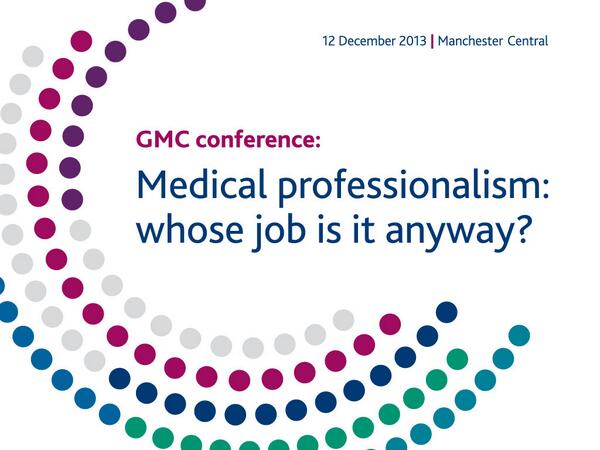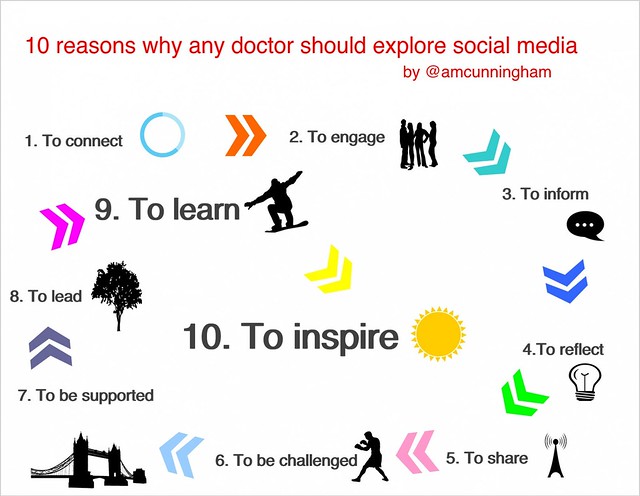
Image : Rock Audience by
Peter Bongard
"The Rules"
Last week a new website appeared :
The Moderate Doctor. The purpose of the website was to host "
The Rules", which were originally described as follows
"The Rules have been developed to help patients maximise their experience of consulting a GP, and give GPs a chance to vent their frustration at the sometimes bewildering world of the consultation. For anyone of a sensitive disposition-do take The Rules seriously! I hope everyone can find some therapeutic benefit in them-doctors and patients alike."
So from the start The Moderate Doctor was pretty clear that this was meant to be satire, although I did suggest to him that he removed any suggestion that these would help patients because I didn't think that it would. And he did. However, less than a week after publishing the rules are gone from the website.
Dr Moderate has said the he meant this as some fun but that it wasn't worth the 'vitriol' and 'grief' which he had received and the he could do without the 'GMC imitators'. Personally, I do not think that the GMC would be interested in this blog or twitter account and if someone thinks that they would, it probably means that they don't understand the guidance on social media. Dr Moderate was not breaking any confidentialities, or doing anything else that I think is in conflict with Good Medical Practice.
Audience
So what audience was Dr Moderate aiming for? He is a keen cyclist and he had based the his rules on
The Rules published on the Velominati's website. Who are the
Velominati? They are' cycling disciples of the highest order" who spend their days "pouring over the very essence of what makes ours such a special sport and how that essence fits into cycling’s colorful fabric".Their website is for those who are DEDICATED to cycling. Their rules might not make that much sense to the rest of us but it is pretty clear that the rules are aimed at those who consider themselves as Velominati, and only those. There is satire but they are laughing at themselves and their own healthy obsession.
Dr Moderate was trying to achieve something much more difficult. His rules were not aimed at making fun of a set of super dedicated GPs, but seemed to be aimed at bonding with other doctors through joking about their patients. It wasn't clear that the focus of the joke was the doctor. That made some people feel uncomfortable. One member of the public wrote replies to the rules in
his own document as he couldn't fit them all into the comments. In general there was quite a lot of confusion about who the rules and the satire was aimed at....
When doctors quibbled about the rules they were often called into question the content not the tone of them. For example, this London GP
replying on Dr. Rant's Facebook page suggests that for patients to bring lists is very useful as often problems are related. And a patient complaining of tiredness could have a serious condition so shouldn't be dismissed. I am certain that if the list had stayed up we could have had very interesting conversations about many of the ideas that they raised. But it's clear that Dr Moderate was reaching a more diverse audience with The Rules than he was expecting.
Do The Rules raise bigger questions?
There is much talk of GP burnout at the moment. If you are a UK GP can take a
survey on the Pulse website to assess how you score for measures of emotional exhaustion, depersonalisation, and lack of personal accomplishment which are
recognised features of burnout. Clare Gerada writes in Pulse that "‘Everything else has increased our workload. The insistence that perfectly healthy people “see their GP” hauls demand for access to an unreasonable level and casts us in a role that we have never asked for." One of the doctors who is sad at the withdrawal of the rules mentions that it was good to know that there were other doctors who felt the same about abuse of the service. So it seems that increased workload may be behind The Rules and behind the concerns about GP burnout.
Is workload related to burnout? A study of medical students who applied to medicine in 1990 (
McManus, Keely and Paise, 2004) measured personality traits and approaches to learning at baseline, and then followed them up in their final year or medical school, their PRHO year and again a few years later. They found the personality and learning style at baseline, predicted feelings of burnout at graduation and approach to work 5 years later. Medical students who were more extravert, had a deeper approach to learning, were less neurotic, and more agreeable were less likely to report burnout, stress and exhaustion later, and then a more positive attitude to work and a greater sense of accomplishment later still. So does personality lead to stress and burnout which then leads to work dissatisfaction rather than the other way round?
But there is some confusion about burnout too. How important is it? Does it affect the way that doctors practice or communicate? Two studies suggest that it might not. A study in the US by
Ratanwongsa et al (2008) measured burnout in primary care doctors and then taped consultations with patients, assessed them against the
ROTER scale and measured patient satisfaction. Burnout was correlated with patients saying more negative things as an attempt to build rapport, but otherwise there was no correlation with patient satisfaction. And in the UK a cross-sectional study of GPs by
Orton et al (2012) found high levels of burnout, but when consultations with patients were examined the burnout was not obvious to observers, and there was no correlation with patient satisfaction. So when the results of the Pulse survey are announced we will need to ask what the significance is.
Where can doctors tell their stories?
Cole and Carlin (2009) write in the Lancet, that burnout is "also a euphemism for what many physicians experience as a crisis of meaning and identity". One of the solutions is for doctors to be able to tell their stories and to be compassionately and non-judgementally listened to. Can social media have a role in this? Jonny Tomlinson's blog is probably one of the most potent examples of this. His
latest post is on the impact that loneliness can have on patients and how they present to their doctors. Last year he moved many people, including me, with his post on how medicine, and we doctors. might make our patients feel
shame. But his blog is only one place that he can tell his story. He
has written about how he still meets every three weeks with a group of GPs who he trained with 11 years ago.
But social media is not somewhere that one can be guaranteed that one will be listened to compassionately and non-judgementally. Dr Moderate took quite a risk when he decided to share The Rules with the world. He has raised important issues and I do hope that we get the chance to explore them meaningfully. But at the same time I wouldn't blame him for wanting to avoid this space. I'll admit that my first reaction to his setting up a website to support one publication, which seemed to be based around a humourous denigration of patients, was not one of empathy or compassion. But perhaps it should have been.
Cole, T., & Carlin, N. (2009). The suffering of physicians The Lancet, 374 (9699), 1414-1415 DOI: 10.1016/S0140-6736(09)61851-1
McManus IC, Keeling A, & Paice E (2004). Stress, burnout and doctors' attitudes to work are determined by personality and learning style: a twelve year longitudinal study of UK medical graduates.
BMC medicine, 2 PMID:
15317650



